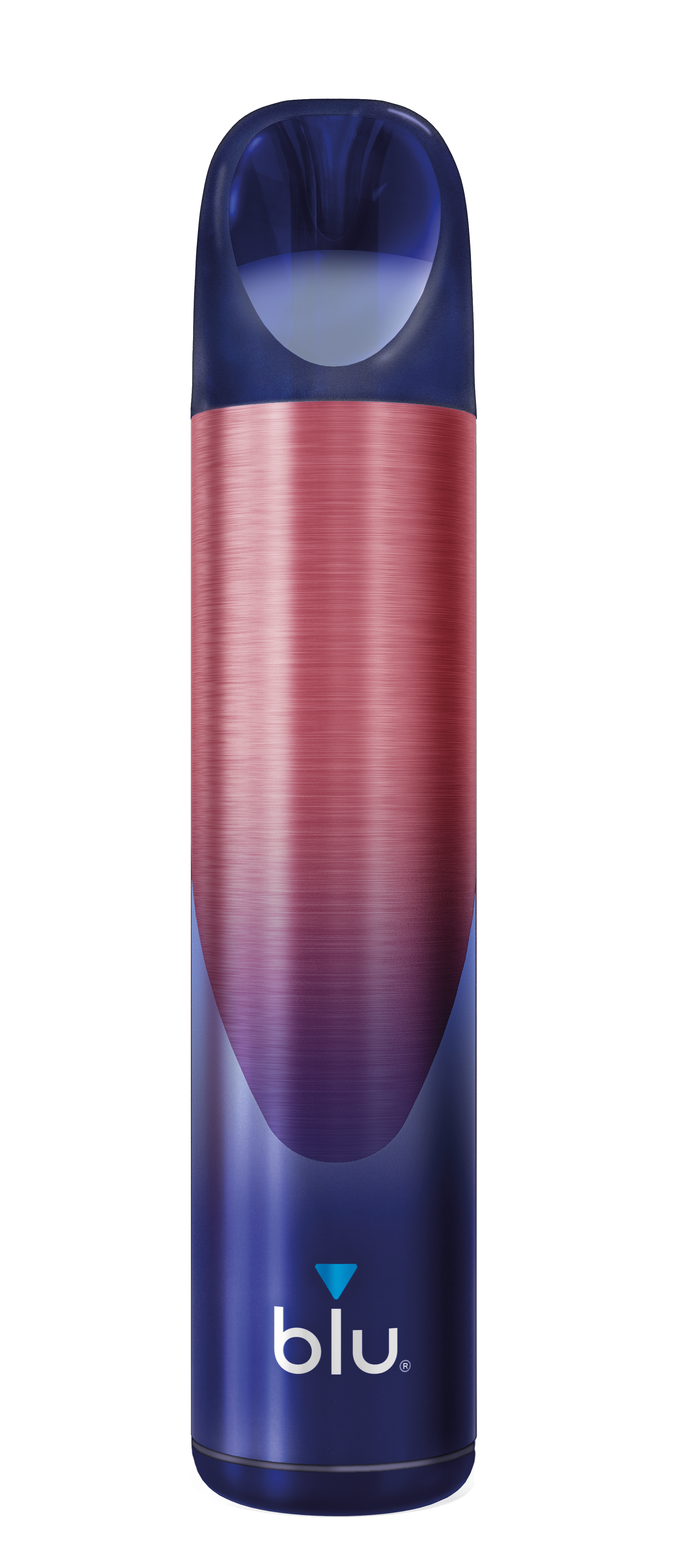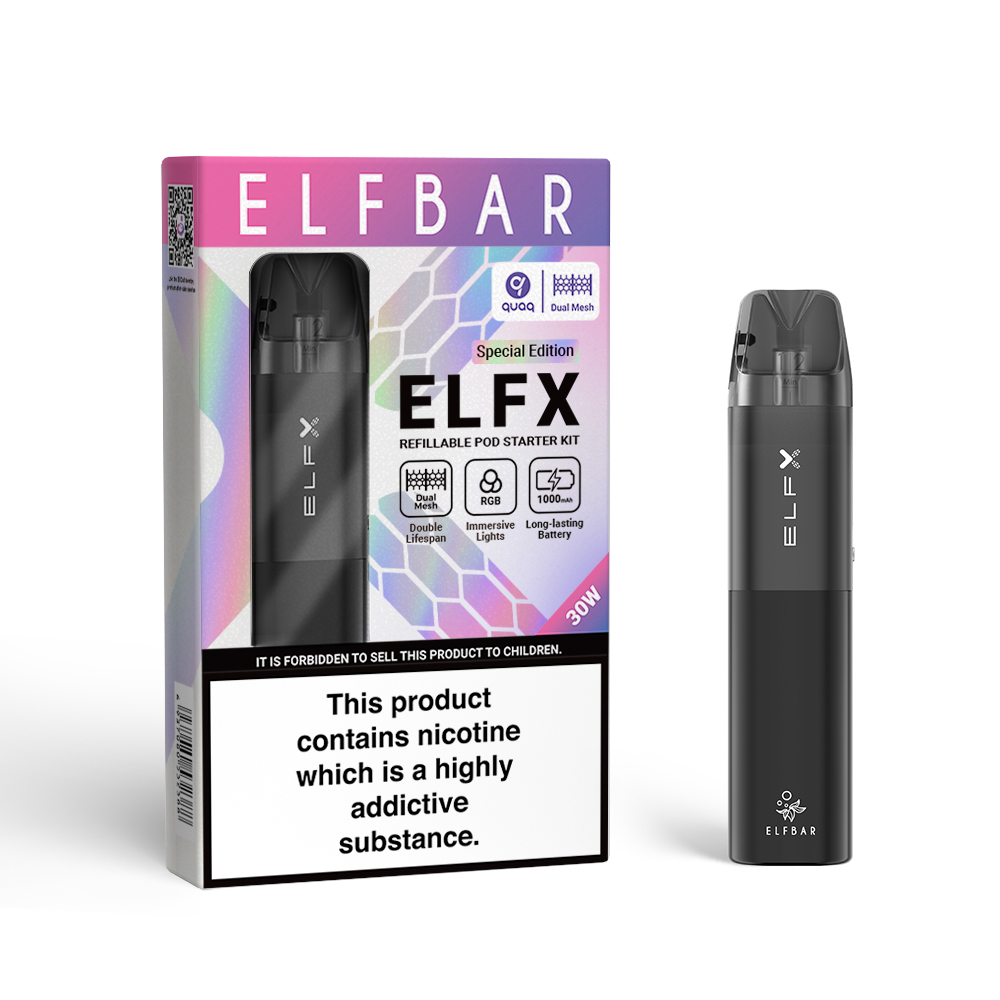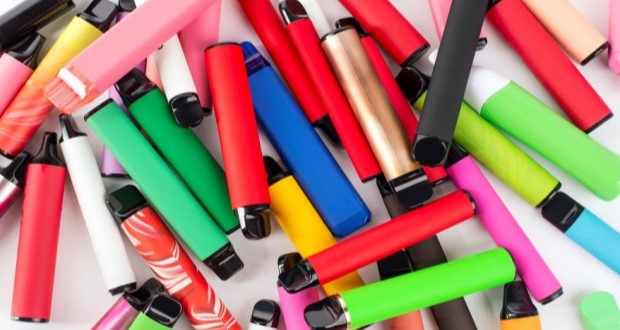Future legislation
Measures such as the proposed ‘rolling’ ban on smoking to anyone born in or after 2009, as well as a registration system for shops that sell tobacco and vapes, are contained in the Tobacco and Vapes Bill.
This legislation is currently at report stage in parliament, meaning it still needs to pass its final reading in the House of Commons before making its way through the House of Lords and the final amendments stage before it becomes law. The process is still likely to take some time, with certain elements not coming into force until 2027.
Single-use ban
The move to make single-use vapes illegal, however, has already been passed under separate legislation, meaning such products will be banned across England, Scotland, Wales and Northern Ireland from 1 June 2025.
Independent retailers who haven’t already done so will therefore need to start preparing now. Luckily, there is plenty of advice out there if you know where to look, including government websites, trade associations, suppliers, wholesalers and symbol groups.
![]()
Disposable vapes ban: key points
From 1 June 2025, it will be illegal for businesses to sell or supply, offer to sell or supply, or have in their possession for sale or supply, any single-use or ‘disposable’ vapes.

This applies to all vapes, whether or not they contain nicotine. If a vape is reusable, you will still be able to sell or supply it.
A single-use or disposable vape is a product that is neither designed nor intended to be re-used. For a vape to be considered reuseable, it must be both rechargeable and refillable.
- A vape is not considered rechargeable if it has a battery you cannot recharge, or a coil you cannot buy separately and easily replace. With a reusable vape, you may be able to directly remove and replace the coil or remove and replace the pod or cartridge in which the coil is encased.
- A vape is not considered refillable if it has a single-use container, such as a pre-filled pod, that you cannot buy separately and replace, or a container that you cannot refill.
Source: Department for Environment, Food & Rural Affairs
![]()
What vaping products can be sold from 2025?
From 1 June 2025 all vaping products you sell, offer to sell or have in your possession for sale must have the following features:
Must be refillable
• A container that is refillable, or
• A container that is separately available and can be replaced, such as a pod system, by a user in the product’s normal course of use.
Must be rechargeable
• Contains a battery that can be recharged, and
• A replacement coil or a coil contained in a single-use cartridge or pod that is separately available after purchase and can be replaced in the product’s normal course of use.
Source: Association of Convenience Stores Selling Vapes Responsibly
![]()
How to check if a vape is reusable
You can check whether a nicotine-containing vaping product is reusable on the Medicines and Healthcare Products Regulatory Agency (MHRA) website, but you must first consider the definition of a reusable vape as published by the government.
Before a nicotine-containing vape is placed on the market, it must be notified to and approved by the MHRA, who confirm this by publishing the name of the product on the MHRA notified products list. If a product is not listed, it’s not legal to sell or supply it in the UK.

From 1 June, the MHRA will remove all single-use vaping products (containing nicotine) from the list. To prepare, you should stop buying any single-use vapes now and prioritise reducing any current stock.
Vapes that do not contain nicotine do not have to be registered on the MHRA website, so it’s important that you check the product is not single-use by other means. Contact your local trading standards for advice if you are unsure.
Source: Department for Environment, Food & Rural Affairs
![]()
Trade association guide to responsible vape sales
James Lowman, chief executive, Association of Convenience Stores (ACS)
The Association of Convenience Stores (ACS) has produced comprehensive guidance for retailers, backed by Buckinghamshire and Surrey Trading Standards, which outlines the steps retailers need to take to comply with the disposables ban, as well as their responsibilities when it comes to the rest of the vaping category, including age-related sales, recycling, and advertising.

ACS chief executive James Lowman says: “The introduction of the disposable vape ban is one of the biggest regulatory changes for retailers in recent memory, with businesses needing to think carefully about how they manage their range of vaping products in the coming months to ensure they’re ready for 1 June.
We urge all retailers to utilise our guide and get in touch if there are products they’re not sure about.”
Kate Pike, lead officer for vaping and tobacco at the Chartered Trading Standards Institute, said: “We encourage businesses to take proactive steps now to prepare for 1 June.
“We expect full compliance from that date and look forward to working together with retailers to ensure a smooth transition. Our priority is supporting responsible businesses, but we will take necessary action against non-compliance where required.”
![]()
Viable alternatives to help maintain footfall and sales
Angelo Yang, associate general manager UK, Elfbar
The single-use vape ban, set to take effect from 1 June 2025, is starting to shift the market toward reusable devices such as prefilled pod kits, particularly high puff-count devices, says Angelo Yang, associate general manager for the UK at vape manufacturer Elfbar.
The company’s Elfar and Lost Mary brands have both produced a range of reusable alternatives to single-use vapes with the aim of providing continuity to customers once the disposables ban comes into force.
Says Yang: “Single-use vapes, as the dominant product category, are a significant revenue-driver for retailers. The availability of viable alternatives will help retailers maintain footfall and sales.”
Reusable versions
Elfbar’s alternatives include reusable versions of its most popular single-use devices as prefilled pod kits.

They include the Elfbar 600 Prefilled Pod Kit, which will replace the Elfbar 600, and the Lost Mary BM600 Prefilled Pod Kit, which will replace the BM600. Both new products are rechargeable and use pre-filled pods.
“Stocking reusable alternatives will be vital in sustaining footfall and sales, and ensuring smokers wanting to quit get continued support,” Yang says.
“To help prepare for the ban on the sale and supply of single-use vapes, retailers should already be phasing out their single-use vape range to allow sufficient time to sell through existing inventory while gradually introducing reusable alternatives for a smooth transition.
Raising awareness
“Ensuring staff are aware of the single-use ban and understand the new regulations, as well as what constitutes compliant products, through training and discussions with sales representatives, is also important.
This will help staff to better understand different product categories and guide adult customers toward reusable alternatives suited to their preferences and smoking habits. Retailers should also be talking to customers to raise awareness of the changes ahead of the phase-out date to help ease the transition.”
![]()
What to do if you have single-use vapes left over
If you still have single-use vapes in your possession from 1 June 2025, you will not be able to sell or supply them to customers. You’ll need to arrange for these vapes to be recycled. To prepare for the ban, you should:
- Stop buying new stock of single-use vapes
- Sell through all existing stock
- Buy vapes that follow the new regulations
From 1 June 2025, if you possess any leftover single-use vaping products, you’ll need to:
- Separate them from other goods
- Label them as unsellable
- Remove them from your shopfloor or online store until they’ve been collected by a registered vape recycling service
Source: Department for Environment, Food & Rural Affairs
![]()
Where to go for help
Retailers should consult the guidance issued by DEFRA, trade associations such as the ACS and Scottish Grocers’ Federation also have guides to support retailers.
Association of Convenience Stores Selling Vapes Responsibly
Department for Environment, Food & Rural Affairs (Defra) guidance
Scottish Grocers’ Federation guide
Medicines and Healthcare products Regulatory Agency
Vaping trade bodies the Independent British Vape Trade Association (IBVTA) and the UK Vaping Industry Association (UKVIA) also offer resources to help retailers stock compliant products and navigate the regulatory landscape. ACS has also produced a poster for retailers to display in-store, communicating the ban to customers, which is available from acs.org.uk.
This article was originally published by a www.talkingretail.com . Read the Original article here. .

